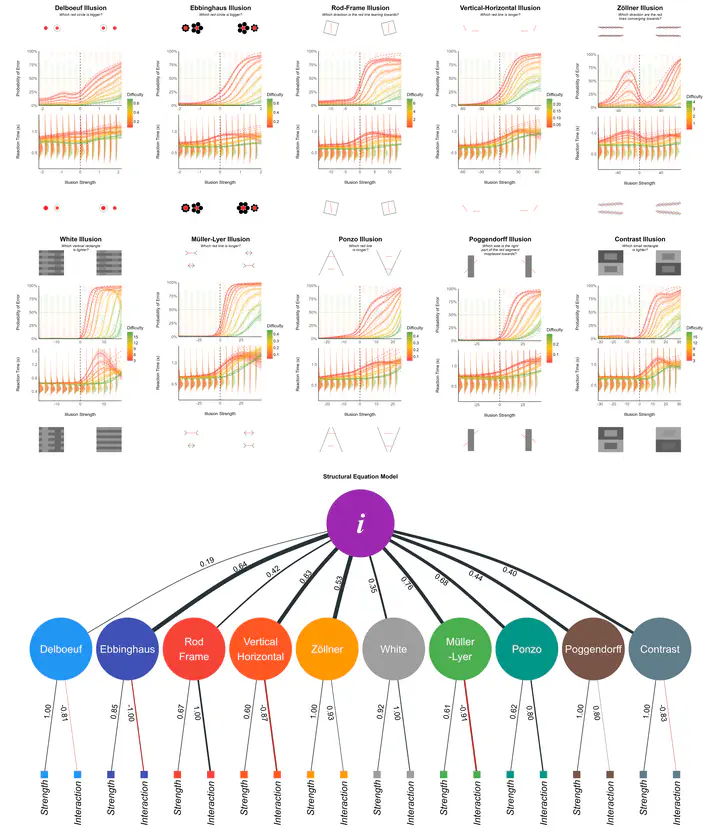A Novel Visual Illusion Paradigm Provides Evidence for a General Factor of Illusion Sensitivity and Personality Correlates

Abstract
Visual illusions are a gateway to understand how we construct our experience of reality. Unfortunately, important questions remain open, such as the hypothesis of a common factor underlying the sensitivity to different types of illusions, as well as of personality correlates of illusion sensitivity. In this study, we used a novel parametric framework for visual illusions to generate 10 different classic illusions (Delboeuf, Ebbinghaus, Rod and Frame, Vertical-Horizontal, Zöllner, White, Müller-Lyer, Ponzo, Poggendorff, Contrast) varying in strength, embedded in a perceptual discrimination task. We tested the objective effect of the illusions on errors and response times, and extracted participant-level performance scores (n=250) for each illusion. Our results provide evidence in favour of a general factor underlying the sensitivity to different illusions (labelled Factor i). Moreover, we report a positive link between illusion sensitivity and personality traits such as Agreeableness, Honesty-Humility, and negative relationships with Psychoticism, Antagonism, Disinhibition, and Negative Affect.